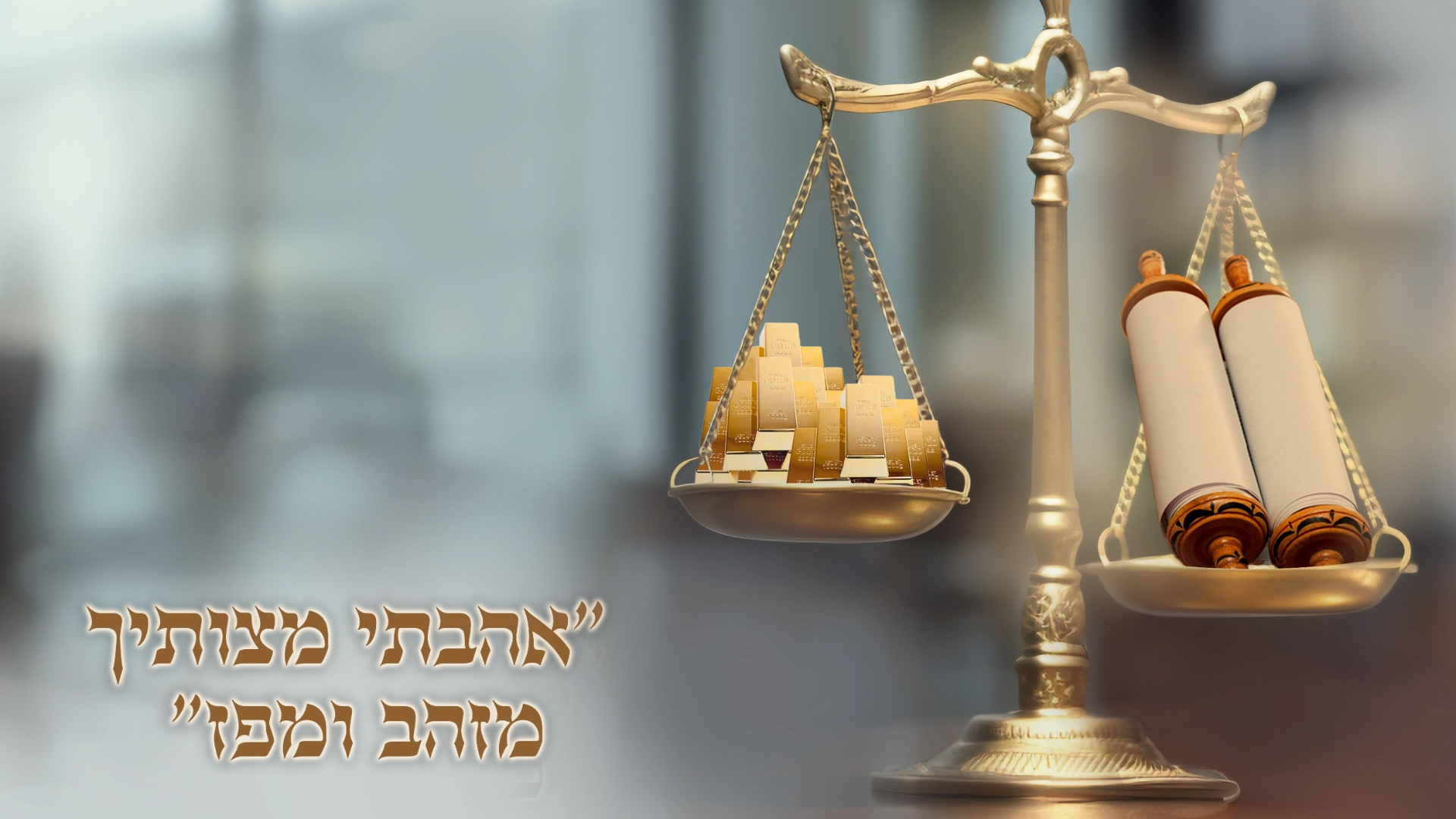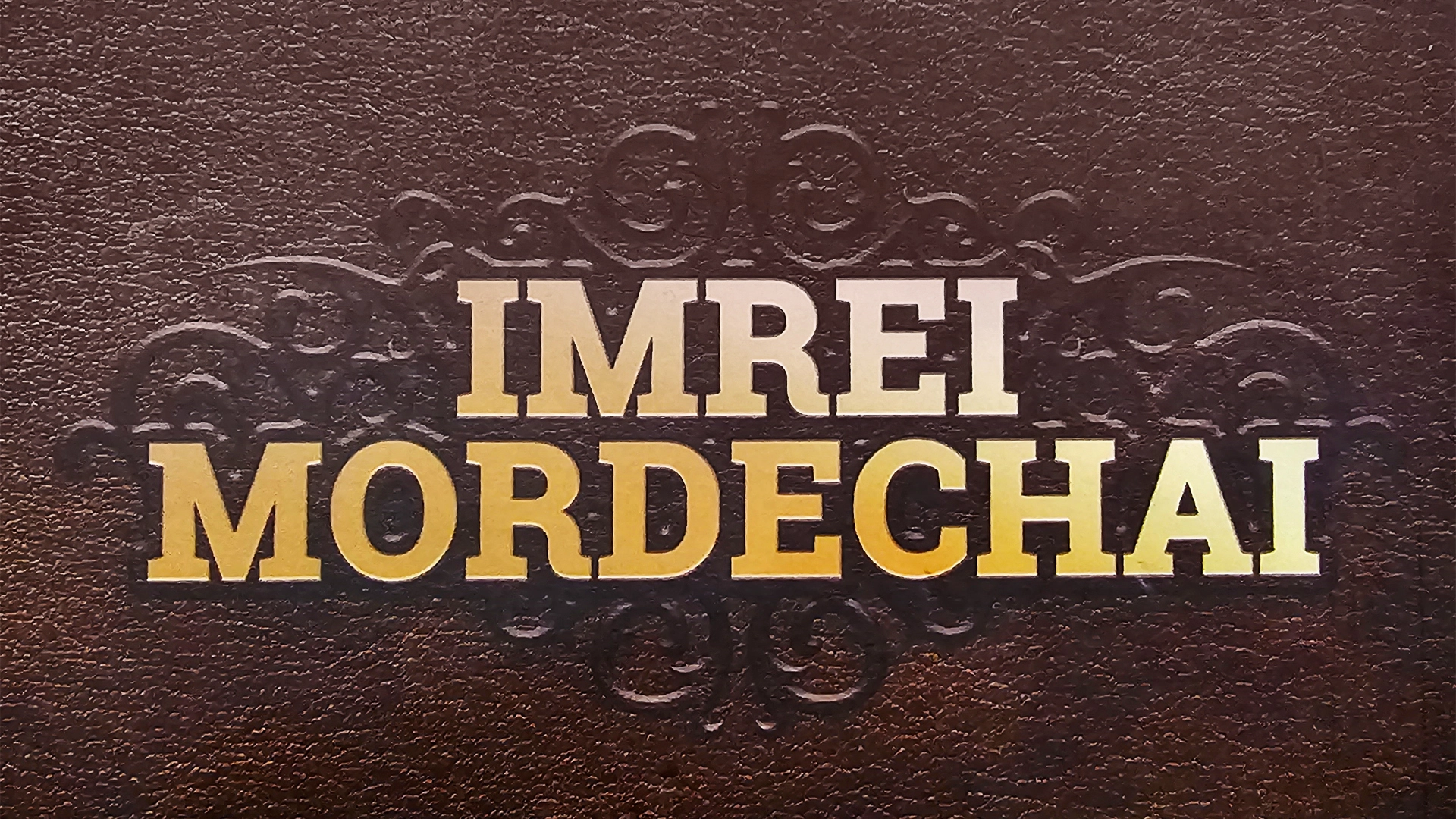September 6th, 2024 / 13th of Elul, 5784

Midrash Tanchuma relates (Buber ed. Ki Sissa 19): It once happened that Rabi Yochanan was travelling from Teveriya to Tzipori with his student, Rabi Chiya bar Abba. As they passed a vineyard, R’ Yochanan commented, “This used to be mine, but I sold it for a certain amount.” They then neared an olive orchard, and he repeated the same. R’ Chiya asked, “And of all your fields you retained nothing for your old age?”
“I sold something worth 6 gold coins and received what is valued 40!” R’ Yochanan answered.
“What is it that you bought?” asked Rabi Chiya bar Abba.
“I sold fields and vineyards which were created in 6 days (along with the entire world), and acquired Torah, which was created in 40 days!”
This story shows us the value that R’ Yochanan attached to Torah. R’ Chiya was bothered by his conduct — how could he sell everything he owned without any financial plan for his future? They didn’t have pension funds or national insurance in those days; only those who saved up for themselves had money. What would R’ Yochanan do in his old age? He replied that there is nothing to worry about. He gained far more than he lost.
We learn from here how to gauge one’s love and appreciation of Torah. We can determine one’s evaluation of an item by how much he is willing to accept in exchange for it. R’ Yochanan was prepared to give up all his worldly possessions in order to learn Torah; thus he displayed that for him, Torah was of primary importance over physical things.
On the other hand, Eisav did just the opposite. He agreed to part with his firstborn rights for lentil stew! Although he had logical arguments — it would eventually be given to Shevet Levi, anyway: etc. — this displayed how much value he ascribed to the birthright. If he really held it in its true worth, he wouldn’t have been willing to relinquish it for any price.
I recall an incident that occurred when I was young, with several small children. I had the occasion to meet a very wealthy man whom I knew well, and decided to utilize the opportunity. I told him, “Listen, I am learning in a Kollel, and my family is literally starving for bread! Officially, they give me $25 a week, only they never pay! Why don’t we make a Yissachar-Zevulun deal, in which you will receive merit for my learning?”
He started to laugh. “If you’re willing to sell your Torah, it’s not worth anything! And if so, I’m not iinterested in buying it!” Although it’s probably that this sort of agreement is not technically a sale, it showed his value system. It wasn’t worth it for him if I was ready to sell my Torah learning away. (As an aside, many years later he married off his daughter to a prestigious Yerushalmi who now has a large Yeshiva in Eretz Yisrael; seemingly due to his correct evaluation of Torah.)
Indeed, when I opened the Kollel here (in Har Tzion), one of my rules was not to distribute stipends to the avreichim. If people learn solely to receive payment, how much is the Torah worth to them? Only if one is ready to sacrifice in order to learn, is it valuable in his eyes.
The Gemara (Avoda Zara 19a) uses an expression describing one’s learning as “his Torah.” Rashi explains that after a Jew toils in Torah, what he understands is considered his own Torah. This means that when one sacrifices for Torah, it becomes a part of him, “bone of his bones.” This is also the intent of Rava’s comment in Makkos 22b: “How foolish are those who rise before a Torah scroll and don’t rise before a Torah Scholar!” What is so foolish about such behavior? Because when a scholar expends effort in his studies, the Torah becomes part of his entity. He himself becomes a Torah scroll! Only a fool, who doesn’t understand this, neglects to accord him the same honor as a Sefer Torah. This achievement, however, does not result from every mitzvah or study session — only learning done with toil and effort can penetrate your bones.
Truthfully, one must assess himself: What does he really want in life? What are his true values? Does he desire only to live; to seek luxuries? Or do you care about principles; do you honestly care about doing mitzvos? Or are they simply objects of personal profit?
We must learn from our Sages how to deal with man’s selfish nature. The verse in Micha (6:8) declares, “He has told, man, what is good and what Hashem requires of you: just to do justice, to love kindness and to walk discreetly with your G-d.” The Mussar giants explain the significance of “walking discreetly” — if one performs a good deed secretly, there are greater chances that it will be done with purity and in the proper way. For example, if someone gives tzedaka or does chessed publicly, there may be various motives behind it — honor, recognition, etc. But if nobody knows about it, it’s much more likely that it will be done with pure intentions.
Similarly, our Rabbis tells us that the trait of humility is conducive to unselfish service of Hashem. It influences one’s actions to be caused not by self-love, but for the sake of Hashem. The more one tries to purify his actions, correspondingly it will elevate his value-system and very essence.
I would like to mention some of the qualities my father, a”h. Many good values could be learned from his conduct, but his foremost theme was “the greatness of man.” He promoted this concept with all of his strength: man should develop his abilities and Heavenly gifts, and be proud to be a member of the King’s legion.
My father was involved with the battle against Hitler in the years 1936-37. When most people didn’t care to get involved, he fought for Jewish rights and Jewish pride. He campaigned for kashrus and even wrote a sefer about it, at a time when public opinion mocked the idea of kosher food.
And besides being concerned with the spirituality of Klal Yisrael, he also worked hard to develop and uplift the concept of man’s greatness in us, his children. He wanted us to use all of our strengths for the community, and obviously it wasn’t for honor, but an honest desire for the benefit of Klal Yisrael. He wanted there to be individuals who would accept the yoke of leading the Klal, who would be unafraid to say the truth and lead the Jewish people in upholding their principles. Unfortunately, my father is not with us, and this is a tremendous loss for me, for my family and for all of Klal Yisrael. May these words be for an elevation for his soul, and we should merit that he will be a meilitz yosher for all of us.
Excerpted with permission from Imrei Mordechai, Vol. 2, A Collection of Inspirational Insights from the “Mussar Shmoozes” of HaGaon Rabbi Mordechai Goldstein Ztzvk”l, The Imrei Mordechai Institute, Diaspora Yeshiva Toras Yisrael, Mount Zion, Jerusalem, Kislev 5779.

Share This!
From beginner to advanced, if you’re a Jewish man, 18 to 35 years of age, and you’re ready to give your heart to HaShem, and to get serious about learning Torah, Diaspora Yeshiva has a place for you with us on Mount Zion, Jerusalem.